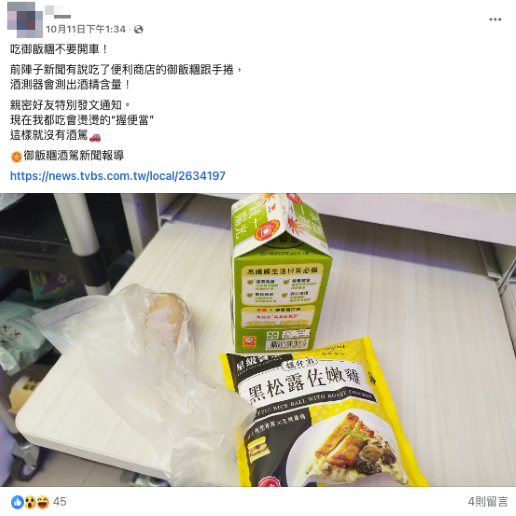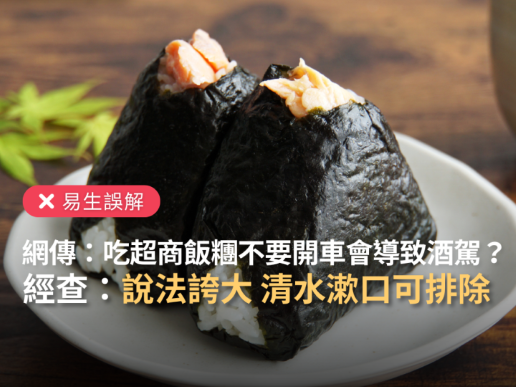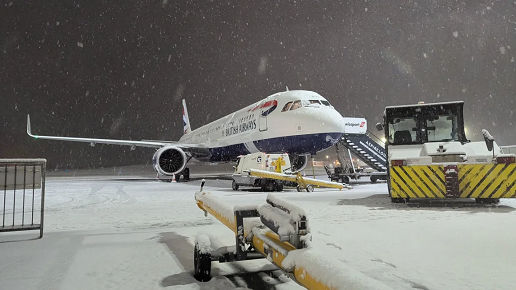In early October, a driver involved in a rear-end collision, feeling hungry, was permitted by the police to leave the vehicle and purchase an onigiri at a convenience store. However, a subsequent breathalyzer test showed a blood alcohol concentration (BAC) of 0.24, exceeding the legal limit. The driver noticed that the onigiri’s ingredients listed alcohol and questioned whether this influenced the test results.
Media reporters experimented by consuming the same onigiri, and a breathalyzer test within five minutes showed a BAC of 0.19. The reporters contacted the responsible authorities, and the police confirmed the incident but stated they could not establish a causal link between the elevated BAC and the onigiri.
As the incident gained attention, social media platforms spread rumors such as "eating onigiri containing alcohol may lead to DUI," sparking widespread discussion. The Ministry of the Interior’s National Police Agency and the Taipei City Traffic Police Corps responded by stating that no DUI cases have been confirmed to result from eating onigiri. Typically, only consuming foods like "ginger duck stew" or fermented rice dishes is more likely to yield detectable alcohol levels. Regarding cases where mouthwash containing alcohol resulted in elevated breathalyzer readings, the police explained that drivers are usually offered water to rinse their mouths to eliminate alcohol residue and reduce the influence on test results. Screenshot of Messages Circulating on Social Media (Photo/Source: Taiwan FactCheck Center Website)
Screenshot of Messages Circulating on Social Media (Photo/Source: Taiwan FactCheck Center Website)
Food and medical experts were cautious about attributing breathalyzer results to the alcohol content in onigiri. Lin Zhe-An, a professor at the Institute of Food Safety at Chung Hsing University, explained that alcohol in onigiri is primarily used for preservation, in minimal quantities, to enhance rice texture and inhibit bacterial growth. It is unlikely to cause elevated breathalyzer readings. Dr. Yang Zhen-Chang, an attending physician in occupational medicine and clinical toxicology at Taipei Veterans General Hospital, also stated that the trace amounts of alcohol in onigiri are insufficient to raise blood alcohol levels and do not affect driving behavior. Screenshot of Messages Circulating on Social Media Platforms (Photo/Source: Taiwan FactCheck Center Website)
Screenshot of Messages Circulating on Social Media Platforms (Photo/Source: Taiwan FactCheck Center Website)
Both the Ministry of the Interior’s National Police Agency and relevant experts recommend that individuals concerned about trace alcohol in foods affecting breathalyzer tests should rinse their mouths or drink water to remove any residue, ensuring safe and accurate results.







